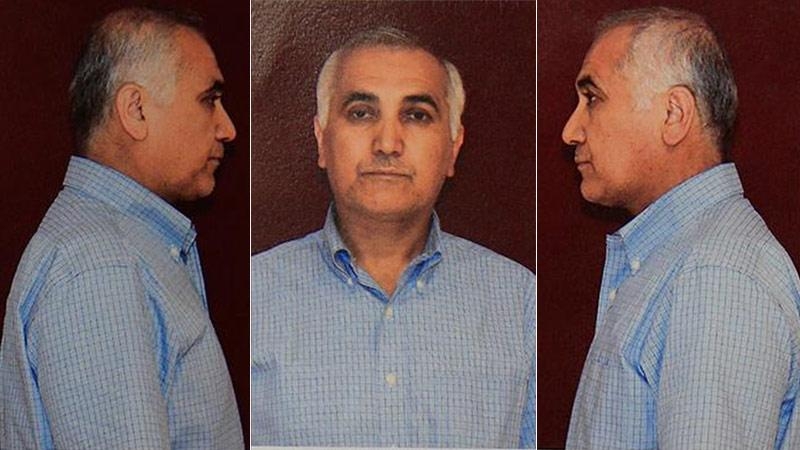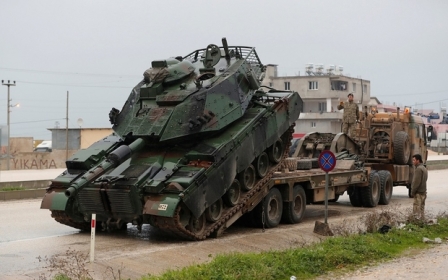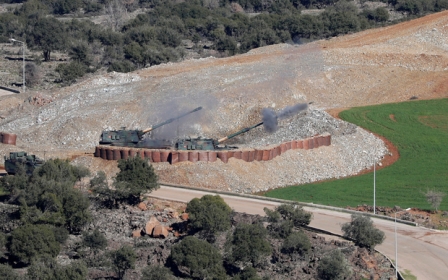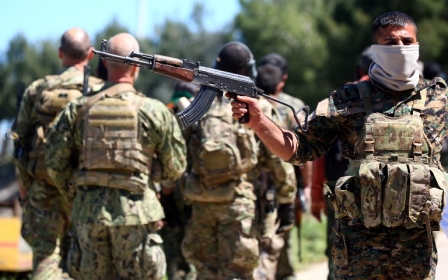Germany investigating whereabouts of main Turkey coup suspect: Reports

German police are actively investigating the whereabouts of the key suspect in the July 2016 Turkish coup attempt, according to German media.
Adil Oksuz - a theology lecturer who Turkey accuses of being the contact between the military forces who attempted to overthrow the government in 2016 and the US-based cleric Fethullah Gulen - has been missing since he was released from custody following his arrest in the wake of the coup attempt.
The Turkish government has regularly claimed he has been hiding out in Germany, but despite a few sightings, his location has never been confirmed and no claim for asylum was ever filed under his name in Germany.
According to a report in German newspaper Suddeutscher Zeitung on Wednesday, however, there is now an on-going "residency investigation" by German police into Oksuz, a move which appears to contradict comments by German Foreign Minister Sigmar Gabriel last month in which he said there would be no investigation until Turkey provided proof of Oksuz's involvement in the coup.
Further confusing matters, the report said that the investigation had been ongoing since November.
Oksuz has been described as Gulen’s "air force imam" due to his alleged role as the contact between Gulenists in the air force and supporters in other areas.
He regularly travelled to the US to meet with Gulen, including a visit just two days before the 15 July coup attempt. The visit was since confirmed by Gulen himself, but he denied that this indicated his own involvement in the coup, describing it as "jumping to conclusions".
Others, including Gulen, have claimed that Oksuz had connections to Turkish intelligence, implying that the coup attempt was either staged or at least known about by the authorities prior to it happening.
Rising tensions
Tensions have risen exponentially between Turkey and Germany since the coup attempt.
Turkey has long accused Germany of being a safe haven for "terrorist" groups including the Fethullahist Terror Organisation (FETO), the country's pejorative name for the Gulenists, the Kurdistan Workers' Party (PKK) and the Marxist-Leninist Revolutionary People's Liberation Party/Front (DHKP-C).
Germany has also frequently refused to extradite other suspects in the 2016 coup case, which has enraged Turkey.
However, the government has instituted legislation to ban public demonstrations involving symbols used by the PKK and the Syrian affiliate the Democratic Union Party (PYD).
A number of German citizens have been detained and arrested in Turkey since the coup attempt.
Turkish-German journalist Deniz Yucel, Istanbul correspondent of Die Welt, has been held in jail in Turkey since February ahead of trial on terror charges, while German journalist Mesale Tolu has been held on similar charges since May and activist Peter Steudtner was arrested in a July raid.
Some German outlets said that Berlin had been preparing to raise arms exports to Ankara in exchange for the release of German citizens, including Yucel. However, the decision on Thursday to halt tank upgrade discussions with Turkey may call that into doubt.
There are an estimated three million people of Turkish origin in Germany. Many of them came, or are the descendants of those who came, to West Germany as gastarbeiter (guest workers) from the 1960s, to make up for a postwar labour shortage.
Middle East Eye propose une couverture et une analyse indépendantes et incomparables du Moyen-Orient, de l’Afrique du Nord et d’autres régions du monde. Pour en savoir plus sur la reprise de ce contenu et les frais qui s’appliquent, veuillez remplir ce formulaire [en anglais]. Pour en savoir plus sur MEE, cliquez ici [en anglais].




